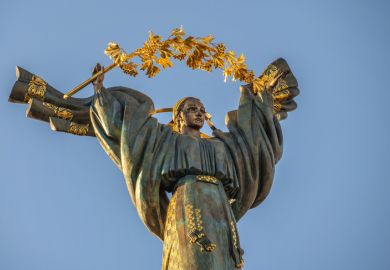This is a thoroughly modern project uncovering a thoroughly 17th-century mindset. Between 1677 and 1691 Roger Morrice, sometime Cromwellian vicar of Duffield (Derbyshire) and for 40 years from 1662 a sinecured chaplain to leading Puritan Whigs, kept a record of whatever caught his eye, or more particularly his ear, as he loitered in Westminster Hall and elsewhere with the intention of picking up news and informed gossip about politics and the politics of religion - for the most part relating to the real and imagined enemies of Puritan Whiggery. His Entring Book was much more than this, but at its heart is a record of the struggle between the virtuous heirs of Puritan parliamentarianism and their Hydra-headed bugbears - papists, prelatists, hierarchists, Tories, Cavaliers. There were enemies as well as friends abroad too, of course, who needed monitoring, and much else that impinged on Morrice's life and that of his patrons, and the focus and purposes of his recording shift over time; but the Entring Book was first and foremost a record of hope and of its frustrations located within the physicality of life in Restoration London, in decades much darker than Pepys's voluptuous 1660s. It is a far less personal account than Pepys's, but just as gripping.
The four volumes of the Entring Book contain 900,000 words, 40,000 of them in a shorthand that few knew at the time and fewer know today. The book has become gradually better known since 1880 and especially since 1945, but few scholars have done more than dip into it.
Two previous attempts to publish a full transcript were trumpeted in the Bulletin of the Institute of Historical Research in 1950 and 1976, but it took the age of the computer and of large research grants by the Arts and Humanities Research Board for the project to be realised. Even with these advantages its completion required the tireless work of six major scholars (or seven if we include Frances Henderson, who teased out the shorthand passages). There are two unusual features of this new edition. The first is its appearance in the 21st century in hard copy only (although a CD-Rom of all Morrice's text is provided with the set, for those who like initiating their own searches), with no online version. Second, most such projects see senior scholars supervising postdoctoral galley slaves transcribing and editing. Here four of the leading scholars of the period (professors John Spurr, Tim Harris, Stephen Taylor and Mark Knights) have taken personal responsibility for the text - one volume each - and the research associate, Jason McElligott, has identified more than 4,000 people mentioned in the text and prepared brief biographies, and he has also prepared a massive and invaluable glossary.
Wise decisions were made at the outset (I should declare that I was implicated as a member of the planning committee, although I had seen not a word of these six volumes until they appeared) not to seek out the provenance of Morrice's own transcriptions or digests of published or manuscript materials and to limit the exegetic function of the notes.
But this is still an extraordinary enhancement of the text, both in the footnotes, in McElligott's volume and above all in the quite extraordinary first volume, edited by Mark Goldie. To their precision and accuracy as editors, Goldie adds a 319-page introduction and 250 pages of appendices (60 in all, providing lists of anything in the text that can be listed - coffee houses referred to, trials attended and so on) and much that will be of great use not only to users of these volumes but anyone interested in the period more generally (lists of all victims of the Popish Plot; of members of the Green Ribbon Club; lists of books censured and burnt across the period).
As for the introduction itself, it not only teases out who Morrice was, what the Entring Book is and is not, how it was compiled and (by brilliant deduction) why it was compiled, but it also explores the whole world of Puritan Whiggery, its values, networks, political programmes and frustrations. It is especially good at how the mindset of non-separating non-conformists, deeply loyal both to the Crown and to a dissenting tradition, mutates over time. And it is full of revelations. Alas, I have space to allude only to two: how a faithful Baxterian such as Morrice could assist the "deist" John Toland in his project to bowdlerise the memoirs of Civil War activists; and the links between Morrice, as hunter- gatherer of the records of the Puritan movements of the previous 150 years, and the writing up of Whig history in the 18th century and beyond.
I found one incorrect date and one error of fact. Otherwise this is an edition as impeccable as it is important. Morrice's partiality led him to call John Foxe's Book of Martyrs an impartial tract for his times. Historians and others will find in Morrice's very partial tract of his times a source illuminating the dark night of the Puritan soul. The set is worth every penny of its demanding price.
John Morrill is professor of British and Irish history at Cambridge University. His Life of Oliver Cromwell has just been published in the "VIP" series, Oxford University Press.
The Entring Book of Roger Morrice
Author - Roger Morrice
Editor - Mark Goldie, John Spurr, Tim Harris, Stephen Taylor, Mark Knights and Jason McElligott
Publisher - The Boydell Press in association with the Parliamentary History Yearbook Trust
Pages - 3,352
Price - £550.00
ISBN - 9781843832447
Register to continue
Why register?
- Registration is free and only takes a moment
- Once registered, you can read 3 articles a month
- Sign up for our newsletter
Subscribe
Or subscribe for unlimited access to:
- Unlimited access to news, views, insights & reviews
- Digital editions
- Digital access to THE’s university and college rankings analysis
Already registered or a current subscriber? Login



